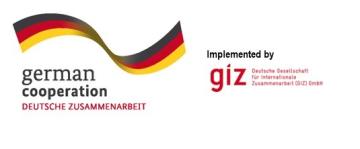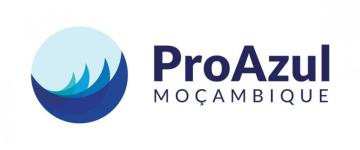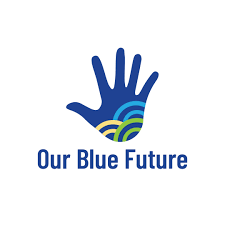
Implementing a Sustainable Blue Economy in Mozambique
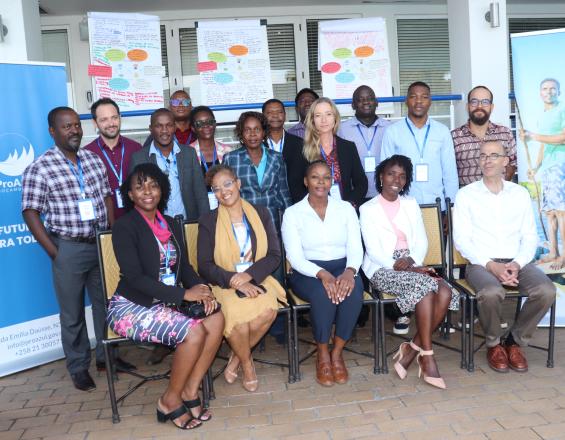
One of the main challenges to operationalize Sustainable Blue Economy (SBE) strategies is the need for a common vision and understanding of what it actually means for a specific sector and actor, and how everyone can contribute. Against this background, the Blue Solutions Project developed in 2021 a training course on SBE that can support actors in setting strategic actions for sustainable ocean and coastal development.
This training was adapted and delivered in Mozambique in May 2023 to the Blue Economy (BE) Council, ProAzul’s (Mozambique’s Blue Economy Development Fund) advisory body that provides independent advice and expertise on the Fund’s activities.
Participants described the training as successful, giving them more skills and knowledge about BE and the need to address sustainability issues. Furthermore, they also gained an understanding of blue value chains and actively contributed by identifying challenges and offering solutions in transitioning towards a more circular economy.
Context
Challenges addressed
The concept of the "blue economy" has gained significant attention in recent years as a sustainable development approach for coastal and maritime nations. Mozambique, with third longest coastline in the Indian Ocean, covering a total distance of 2700 km, and extensive marine resources, has been exploring this concept as a way to promote economic growth while ensuring the conservation of its marine environment. ProAzul has been very important in spearheading these changes, however, many challenges still linger, among them:
- Lack of understanding of what SBE actually is and what it necessary from the different sectors and actors in terms of contributions;
- Scarcity of inter-sectoral exchange opportunities on blue economy;
- Members of the ProAzul's Blue Economy Council Mozambican’s Blue Economy Strategy design team without previous holistic training on the thematic.
Location
Process
Summary of the process
Evaluation of training gives comprehensive feedback on the value of the training programs and their effectiveness. It helps the facilitators and participants to better understand and identify skill gaps to analyse the desired outcomes of training programs. This process must be continuous (before, during and after the training) and rightly synced with the training methodology to produce better results.
Building Blocks
Pre-Training Survey boosting training effectiveness
The Blue Economy (BE) concept has become a central aspect of global and regional environmental policies. This is mainly reflected in the Sustainable Development Goals (SDGs) through Goal 14, which is to “conserve and sustainably use the oceans, seas and marine resources for sustainable development” (UN, 2017). Nonetheless, such concept is still new to Mozambique, and it became relevant to explore the different participants background on this topic.
Enabling factors
Pre-training surveys helps to gather data that can inform how to run the training, how it’s delivered and what content it covers. To ensure training participants’ ownership of the program, a preparatory working group meeting was also convened, enabling potential participants to share their expectations and learning objectives with each other and to discuss key adaptations to be done. The results from the survey helped to make changes or improvements that maximized the results for the participants.
Lesson learned
- Objectives should be shared clearly from the very beginning of the process;
- It is necessary to use the information from the participants to prepare a tailored training;
- Facilitators should be flexible to attribute specific time to certain topics;
- Exercises should be tailored to audience level and make them more culturally appropriate.
Participant-centred evaluation
Training evaluation can be understood as the systematic process of collecting information and using that information to improve the training. Without disregarding the pre-training evaluation, keeping track during and after the training is relevant for the ongoing and future trainings.
Enabling factors
The evaluation process for the Sustainable Blue Economy Training was conducted on a daily basis, with a strong emphasis on the active involvement of the co-management group. This group, consisting of three participants, played a key role in assessing the effectiveness and impact of the training program. Through daily evaluations, the co-management group provided valuable insights and feedback on the training sessions, facilitation methods, and overall learning experience.
Lesson learned
- Daily evaluations are needed for continuous improvement of training efectiveness;
- Post evaluation should be done at training location;
- Evaluation platforms should be used after assessment of participants capacity to correspond.
Training Methodology
The Sustainable Blue Economy Training emphasizes an interactive and participative approach, fostering a dynamic learning environment. Unlike traditional training programs, the facilitators prioritize engagement and active participation, which allowed for a more contextualized and meaningful learning experience tailored to the participants’ specific needs and realities.
Enabling factors
The training combined the presentation of concepts and ideas with a series of interactive exercises in which participants apply these concepts and learn about practical tools to use within their own organizations and wider actor networks. The materials were adapted to help practitioners and decision-makers discuss conceptual knowledge on SBE, and to create interactive work sessions that provide participants with opportunities to practice methodologies and tools that they can take away and use subsequently to address or strengthen their contribution to an SBE.
Lesson learned
- Engaging participants to reflect on their own challenges and actively discuss solutions proved vital for the training's success;
- Logistics should be more related to training methodology;
- It is advisable to conduct trainings preferably outside of the city to prevent participants from being called back by their superiors, as well as to create a more immersive training experience.
-
The facilitators maintained a neutral stance and should have provided more critical feedback on group work results.
-
The training assumed that participants had read the materials, which was not possible for many participants.
-
There was a decrease in the number of participants over the course, particularly in the case of the BE Council
-
There was a gap in participant selection, as representatives from the private sector and local community leaders should have been invited.
-
The use of Miro Boards was challenging for most participants.
Impacts
- 19 participants received a three-day training on Sustainable Blue Economy, focusing on what it means for Mozambique.
- The training effectively linked theory to immediate practical application, allowing for better visualization and use after training.
- Participants were incentivised to identify necessary policy, institutional, financing and technical requirements for SBE in Mozambique.
- Participants received relevant documents, improving access to information.
- Participants created a network for continued discussions after the training sessions.
-
Training participants that are members of the National Blue Economy Strategy design team were able to provide more practical inputs.
Beneficiaries
Members of ProAzul's Blue Economy Council: Directors from five-line ministries (sea, transport, tourism, energy and environment) as well as representatives from the private sector, civil society and academia.
Sustainable Development Goals
Story
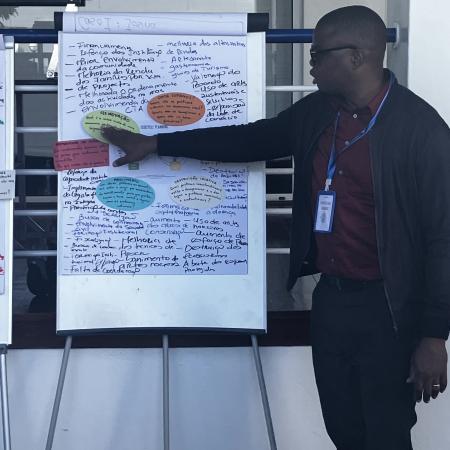
Castilho Bande, a senior advisor at INAMAR (National Sea Institute) had no prior knowledge about Blue Economy (BE) different subsectors and their relations to each other. Through the training, Castilho gained not only more theoretical background in BE, but also explored different practical nuances of this sector.
"The experience was exhilarating. To be able to learn and share my knowledge with the colleagues from the other ministries, as well as private sector, civil society and academia was really great. It was interesting to see things by other perspectives and conciliate our experiences from diverse backgrounds to design solutions for different exercises we were required to answer as a group. I could also listen to ideas that will be useful in my day-to-day work, as some international practices are really working but others not, and it’s important to use this knowledge to help the elected officials to make fact-based decisions, of course I say this as a advisor at my workplace."
The training allowed him to acquire knowledge and skills to drive sustainable development in the blue economy sector. The interactive sessions, case studies, and practical exercises allowed Castilho to gain an understanding of the principles and practices that promote the responsible and sustainable use of ocean resources while considering social, economic, and environmental factors.
Castilho felt encouraged to think critically and explore problems and solutions through practical exercises, which helped him to discover innovative approaches and develop a deeper understanding of sustainable blue economy practices based on Mozambican reality. This interactive format promoted a collaborative learning experience, enabling Castilho to contribute his unique perspective and explore solutions to real-world challenges in the field of blue economy with help of other participants.



